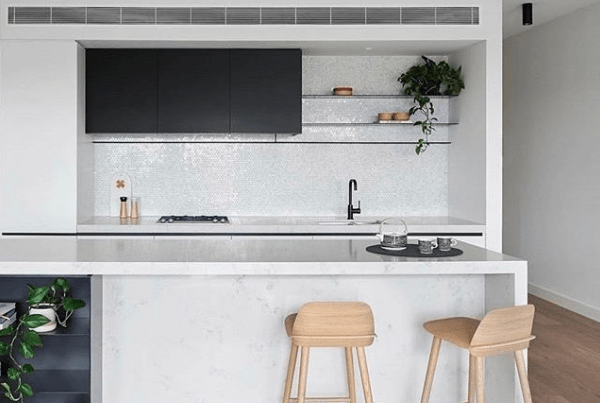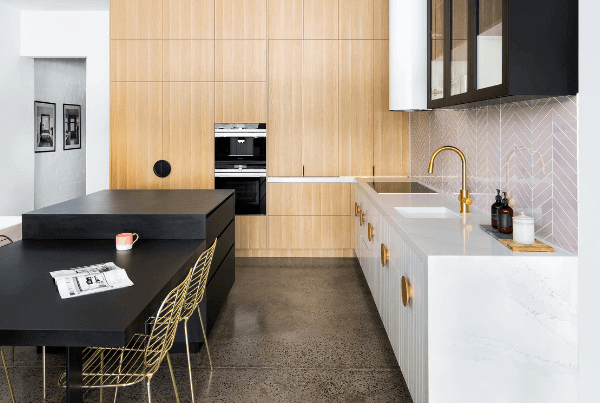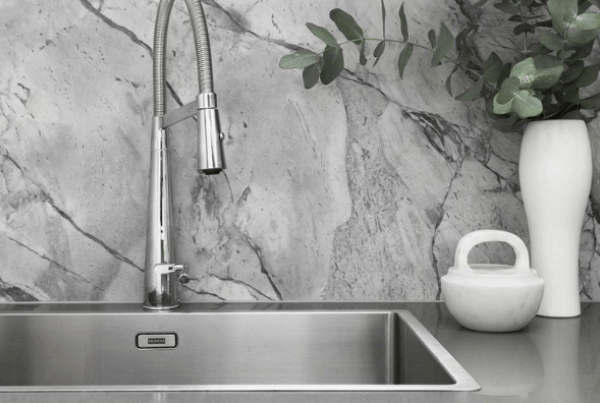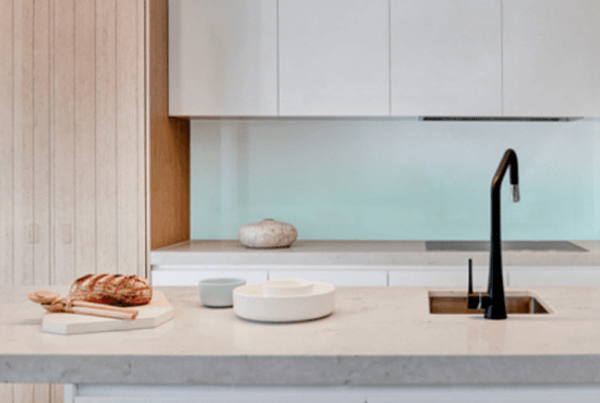Homeowners consider the kitchen as the most significant area in the house. Hence, most of them put a lot of effort and money to remodel and make their kitchen especially the kitchen countertops as attractive as it can be. Kitchen remodeling is expensive and a tough job to do. In this kind of project, you should allocate a majority of your time to planning and budgeting.
Kitchen remodeling has a lot of factors you need to consider. These factors include the design, layout, flooring, fixtures, cabinets, countertops, and appliances. One essential that you have to install in your kitchen is the countertop.
Whether you’re upgrading or building a new kitchen, you’ll know the different array of options for kitchen countertops. As new materials become available in the market every day, how will you find the most suitable countertop for your kitchen?


ABOUT KITCHEN COUNTERTOPS
Every day, your kitchen countertops could serve you as a cutting board, desk, hot pad, food preparation surface, cooking surface, and a dining area. When looking for a countertop, you will need a preparation surface that has high durability, cost-effective, attractive, and suitable for your kitchen design.
You can install quality wise countertops with the help of a professional and have a look that no other countertop material can match. When choosing a countertop, take note of these guidelines:
- Engineered stone and solid surface countertops have a lot of similarities and almost identical to each other. What you can see in a showroom about these countertops is what you can probably get at home.
- Other than engineered stone and solid surface, there’s still a countertop that’s more natural-looking. Therefore, if you want a pure and unrefined countertop, then consider installing granite.
- Have a separate budget for the installation of your countertop and expect to spend 10% to 15% of your kitchen renovation project. If you’re not responsible enough when spending your money, you may wind up with the worst possible countertop for your kitchen. It may not fit with your kitchen.
- If you’re fond of cooking or you’re an aspiring chef, consider installing different types of kitchen countertop. If you need help installing the countertops, kitchen renovations in Melbourne and other retailers are more than willing to help you with your needs.
Some cooks prefer having a wood section for chopping as to bakers prefer marble for preparation and rolling dough. Having different types of countertops in different areas makes your work a lot easier and convenient.
Choosing the right and suitable countertop will always depend on your choice or the style of your kitchen. Here’s a list of countertop options with their pros and cons.
BUTCHER BLOCK COUNTERTOP
Butcher block countertops can add warmth and rustic flair to your kitchen. This countertop has one of the most cost-effective materials compared to other countertops. Homeowners who install this type of countertop often find that it is on the lower end of the cost spectrum.
Pros
- An excellent surface for food preparation.
- Gentle on delicate utensils and kitchenware.
- Highly durable if maintained properly.
- Less expensive than the other options.
Cons
- Easily damaged by sharp objects.
- Not heat-resistant.
- Susceptible to water stains.
- Prone to dents, spills, and scratches.
- Protective sealer required.
- Requires regular maintenance.


TILE MATERIAL COUNTERTOP
Tile countertop has a vast selection of styles and materials. Each type of design has different advantages and price range. One main reason why most homeowners prefer tile countertops is its reasonable thickness that they can install by themselves. Tile countertops are typically priced in the mid range compared to other options.
Pros
- While other countertop materials should have the help of a professional to install, you can install tile countertop on your own even if don’t have enough experience.
- A suitable surface for hot pans, stove, and oven as it is highly resistant to heat.
- Tile countertops have a wide variety of styles, colors, and designs.
- You can replace a single tile easily if it’s broken.
- An easy to clean countertop.
Cons
- Homeowners who prefer DIY may end up with a less perfect surface when installing.
- Tile countertop material is prone to chipping.
- Beverages such as wine, coffee, and spilled liquids can stain grout lines if not sealed properly.
- Prone to grout discoloration.
- Regular maintenance is essential.


STAINLESS STEEL COUNTERTOP
Stainless steels are a perfect countertop for restaurants or to chefs. It is a countertop that portrays modern design. Most chefs and homeowners describe stainless steels as virtually indestructible.
The polished look and modern appearance of stainless steel are suitable for both traditional and contemporary kitchen styles. It’s the quickest way to bring a professional vibe to your kitchen. Stainless steel countertop costs are often priced in the mid-range bracket.
Pros
- Stainless steel countertops have a high-end, commercial-kitchen look.
- Highly durable and heat resistant.
- Helps the kitchen look brighter.
- It’s perfect for contemporary style kitchens.
- It has an elegant-tailored look.
- Highly resistant to rusts and stains.
Cons
- The major drawback of stainless steel countertop is they’re prone to dents and scratches.
- It can be noisy to work with.
- It can be highly expensive.
LAMINATE COUNTERTOP
Laminate countertops are one of the most affordable countertop material. With the new designs nowadays, laminate countertop offers a wide variety of selections fitting most budgets and decor styles. This countertop material can also take place in contemporary kitchens. Laminate countertop costs are typically in the mid-lower cost range.
Pros
- Laminated countertops are highly cost-effective.
- Has a wide variety of colors, styles, and designs.
- Easy to install and a viable DIY option to handy homeowners.
Cons
- Highly prone to chipping off.
- Prone to heat as it can melt quickly.
- It adds a little value to the home’s selling price.
- Requires high maintenance.
- Always wipe up liquid stains, the longer it sits, the more likely it’s to stain.
MARBLE COUNTERTOP
Marble countertops are still popular with most homeowners. The classic white marble remains one of the top choices for kitchen countertops and has been attracting homeowners for millennia.
Marble countertops have a natural pattern which you can’t get with the other countertop materials. When you compare marble to other countertop materials, there’s nothing like a white marble countertop. This countertop option is in the mid-high cost range.
Pros
- Marble countertops are useful to bakers.
- Has a wide variety of colors and styles.
- Easy to polish scratches and small nicks.
- Small stains are not a threat.
- Marble countertops are highly durable.
Cons
- Extremely heavy as it’s a natural stone.
- It needs durable and robust support.
- Requires sealing periodically.
- It can be too expensive.
- It can chip, crack, and stain if not maintained properly.


SOAPSTONE COUNTERTOP
Soapstone falls under the category of natural stones. Composed mostly of mineral talc, making it soft. It can give your kitchen a lovely, old-world feeling. Most homeowners choose soapstone over granite and other natural stone surfaces.
It gives your kitchen a contemporary look with an exquisite and exclusive ambiance. Installing soapstone countertop would cost you $2,200 to $3,600.
Pros
- Soapstone has an attractive natural grey color.
- It has a smooth matte feel.
- Highly resistant to engraving from acids.
- Oil and sandpaper can remove scratches easily.
- Not harmful to the environment compared to the other quarried stones.
- Stain and heat resistant.
- No sealing but requires occasional oiling.
Cons
- Compared to other natural stones, soapstone is softer.
- Prone to scratches and dents.
- Colors can fade and darken in time.
- Regular maintenance is a must.
- Prone to cracking and chipping.
- Tough stains can be difficult to wash away.
GRANITE COUNTERTOP
Considered as one of the most chosen countertops for homeowners who’re remodeling their home kitchen. Granite is a crystalline rock which is harder than a marble. It also falls on the natural stone category. Installing granite countertops can cost you between $6,000 and $14,000.
Pros
- Granite countertops are highly durable.
- Stain, heat, and water resistant when appropriately sealed.
- It requires minimal maintenance.
- Each slab is unique and natural.
Cons
- Extremely heavy and needs robust support.
- Can chip or crack if not handled properly.
- It needs sealing periodically.
- It can be too expensive.


QUARTZ COUNTERTOP
With the look of natural stone, quartz countertop also is one of the favorite choices among homeowners. It comes with a wide variety of styles and designs. Many of these styles happen to be the most eye-catching than the other countertop materials. The cost of this countertop material ranges from $6,000 to $15,000.
Pros
- Quartz countertops have low maintenance.
- It doesn’t need sealing.
- Highly stain, scratch, and heat resistant.
- Suitable for a busy kitchen.
- It has a wide variety of styles and designs.
- It’s antimicrobial and design-friendly.
Cons
- Quartz countertops are expensive, so if you’re on a tight budget, you have other options than quartz.
- It can’t stand the extreme heat as it can only handle up to 400 degrees Fahrenheit.
- It can be prone to chipping.
- It may have visible seams.
SOLID-SURFACE MATERIAL COUNTERTOP
Solid-surface material countertops are a versatile and practical choice for kitchens. These countertops are manufactured using a blend of acrylic polymers and natural minerals, offering a seamless and non-porous surface that’s easy to clean and maintain. As this countertop material is considered a premium product, it is typically more expensive than some other options.
Pros
- Solid-surface countertops are non-porous, making them resistant to stains and bacteria.
- They are low-maintenance and easy to clean, requiring no sealing.
- Solid-surface material can be easily repaired, with scratches and dings being sand-able and renewable.
- The material is available in a vast array of colours and patterns, offering design flexibility.
- Solid-surface countertops have inconspicuous seams, providing a smooth and continuous appearance.
- They are generally more affordable than natural stone options, making them a cost-effective choice.
Cons
- Solid-surface countertops are not as heat resistant as some other materials and can be damaged by hot pots and pans.
- They can scratch more easily than some harder materials, like quartz or granite.
- The appearance, while versatile, may not fully replicate the depth and character of natural stone.
- Prolonged exposure to strong chemicals (e.g. paint removers) can damage the surface.
- Solid-surface materials can appear less luxurious compared to natural stone or high-end materials.
CONCRETE KITCHEN COUNTERTOP
Exuding a modern and industrial aesthetic, concrete kitchen countertops are a striking and versatile choice for homeowners seeking a unique and customisable surface. Concrete allows for a range of textures, colours, and finishes, from sleek and polished to rugged and textured. Many of these styles are not just functional but are bona fide conversation starters. This countertop is a premium custom product and is therefore at the more costly end of the pricing spectrum.
Pros
- Concrete countertops are highly customisable, offering endless colour, texture, and design options.
- They can be crafted to fit any shape and size of a kitchen, accommodating unique and unconventional spaces.
- Concrete is inherently durable and, when sealed properly, can resist stains and wear.
- It has a distinctive and modern aesthetic that can complement various kitchen styles, particularly industrial and contemporary designs.
- Concrete countertops can be integrated seamlessly with concrete sinks for a sleek and unified look.
- They can add significant value to a home due to their high-end, custom appearance.
Cons
- Concrete countertops can be expensive, particularly for complex designs and finishes.
- They require regular sealing to maintain stain and water resistance.
- Concrete is a porous material, making it susceptible to stains if not sealed properly.
- The material is heavy, which may necessitate additional structural support in some installations.
- They can develop cracks over time, although some homeowners appreciate this as part of their character.
- Concrete countertops can be rough on delicate glassware and dishes, and can chip or scratch more easily than some harder materials like quartz.
TAKEAWAY
Kitchen countertops are essential to have a functional kitchen. It isn’t just designed for your kitchen to look good but it’s a requirement to improve productivity and comfortability. There are many factors and benefits in having a countertop.
Therefore if you’re looking for the right countertop, consider the selection above and try to choose the most suitable countertop for your kitchen.


Illan Elberg
Managing Director
Illan is an accomplished professional with a wealth of experience in construction management and a deep understanding of bathroom and kitchen design. His dedication to staying current with industry trends, coupled with his creative vision and meticulous project management, make him an invaluable asset to GIA Bathrooms & Kitchens.


